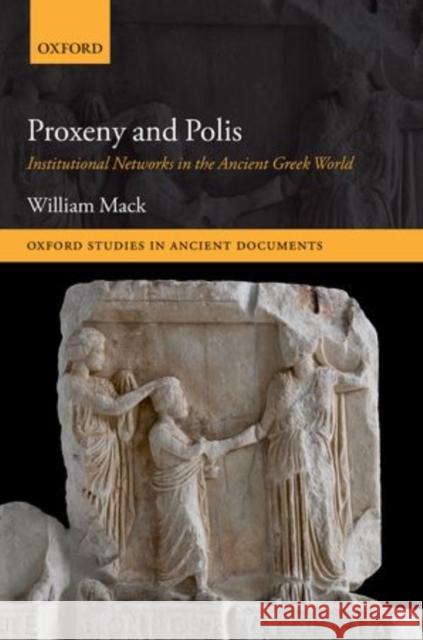Proxeny and Polis: Institutional Networks in the Ancient Greek World » książka
Proxeny and Polis: Institutional Networks in the Ancient Greek World
ISBN-13: 9780198713869 / Angielski / Twarda / 2015 / 464 str.
Known from ancient authors such as Herodotus, Thucydides, and Plato, and more than 2,500 inscriptions, proxeny (a form of public guest-friendship) is the best attested interstate institution of the ancient world. Proxeny and Polis offers a comprehensive re-examination of our evidence for this important Greek institution and uses it to examine the structure and dynamics of the interstate system of the Greek world, and the way in which these were transformed under the Roman Empire.
Based on a detailed analysis of the function of the formulaic language of honorific decrees, this volume presents a new reconstruction of proxeny, and explores the way in which interstate institutions shaped the behaviour of individuals and communities in the ancient world. It draws on other material which has not been systematically exploited to reconstruct the proxeny networks of Greek city-states. This material reveals the extraordinary density of formal interconnections which characterized the ancient Greek world before the age of Augustus and reflected both trade and political contacts of different kinds.
It also traces the disappearance of both proxeny and the broader institutional system of which it was part. Drawing on nuanced analysis of quantitative trends in the epigraphic record, it argues that the Greek world underwent a profound reorientation by the time of the Roman Principate, which fundamentally altered how Greek cities viewed relations with each other.











